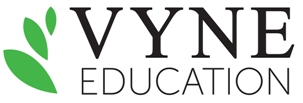Printer Friendly Copy
Practical Strategies for Diagnosing & Treating Obsessive-Compulsive & Body Dysmorphic Disorders
VYNE

Format(s): Live Seminars
Discipline(s): Counseling / Social Work / Psychology
Contact Hours:
Registration Fee: $189.990005493164
Objectives
- •Apply DSM–5® criteria to accurately diagnose OCD and BDD
- •Explain the rationale for considering BDD as an obsessive–compulsive spectrum disorder
- •Describe cognitive and behavioral manifestations of OCD and BDD
- •Determine the effectiveness of CBT, group therapy, and other treatment strategies for OCD and BDD
- •Identity appropriate support resources for clients and families
Description
One Size Does NOT Fit all: Treating the Many Variations of both OCD and BDD
Once believed to be a rare psychiatric illness, obsessive–compulsive disorder is now considered to be fairly common in both adults and children as an estimated 2–3 million people in the country may have it. In recent years it has received considerable media attention, and as a result public awareness of it has greatly increased. Unfortunately, few clinicians are skilled in the treatment of it and many still try to utilize more traditional psychotherapeutic techniques no longer believed to be effective for OCD.
Characterized by tormenting obsessions associated with physical appearance, body dysmorphic disorder is considered to be quite similar to OCD, and as such is recognized as one of the obsessive–compulsive spectrum disorders. As many as 3–5 million people in this country are believed to have BDD, though most sufferers first pursue medical treatment to correct the perceived flaw in their appearance, rather than seeking more appropriate psychiatric care.
The primary purpose of this seminar is to familiarize attendees with the two diagnoses, to review cognitive and behavioral manifestations of each, and to thoroughly explore forms of treatment. Specifically, medication, cognitive therapy, as well as behavior therapy in the form of exposure and response prevention will be highlighted, as will the usefulness of group therapy. Considerations for differential diagnosis, comorbid disorders, and resources for support will also be addressed. Diagnostic changes in the DSM–5® will also be reviewed as they reflect a growing understanding of how these two disorders are alike in many ways.
DSM®, DSM–IV–TR®, and DSM–5® are registered trademarks of the American Psychiatric Association. The American Psychiatric Association is not affiliated with nor endorses this seminar.
Date And Locations
Provider does not currently list available courses on RehabEdge.